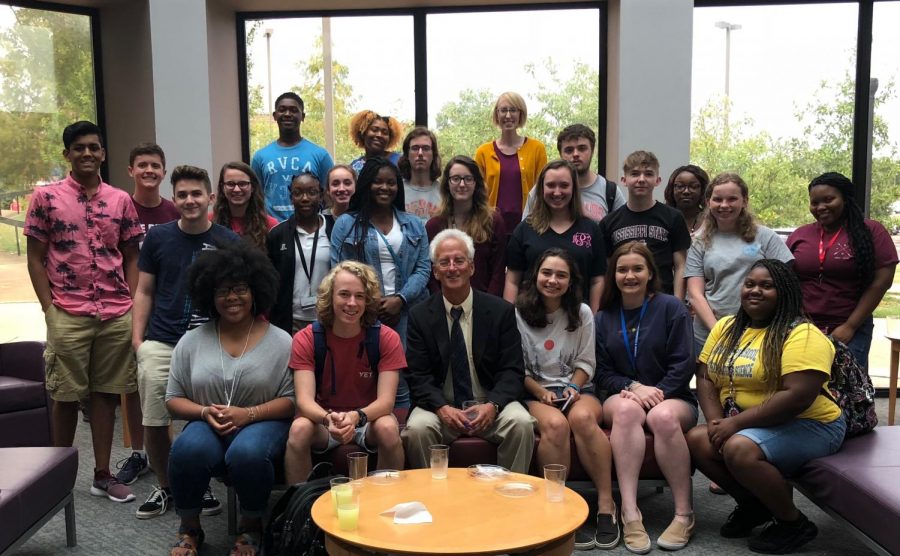Economic Students Attend Talk at MSU
Dr. Andrew Zimbalist with MSMS students after the sports talk at Mississippi State University.
September 10, 2018
Last Tuesday the economics class was sent to Mississippi State University(MSU) to listen to a powerful talk on the crisis and reform of intercollegiate athletics in the United States.
Dr. Zimbalist, a world-renowned expert on economics, college sports, the olympics and baseball, spoke on the intention to provide a deeper understanding of the crisis facing college sports and ways of addressing it.
“It opened my eyes to many of the challenges in college athletic programs, and I think many of the students were surprised and interested in many of the topics he discussed as well, such as the idea of paying athletes and capping coaches’ salaries,” Dr. Kayla Hester, MSMS economics teacher, said.
The statistics he gave about the 127 top athletic programs shocked many of the economic students that attended.
“I thought the talk was extremely interesting, specifically the fact that some college sport leagues are operating at deficits as high as $14 million per year. Even with the popularity of college sports, I don’t understand how a program continues with that kind of deficit,” Lane Hughes said.
Zimbalist said that this number does not even cover the capital and indirect costs which add another $10-20 million to the large deficit.
He pointed out that many things could be done in 110 of the schools in the Football Bowl Subdivision to help fix this, such as increasing student activity fees, decreasing the financial aid, decreasing the educational budget, and dropping out of the competitive athletic race.
Some schools, like CSU and University of Massachusetts, instead choose to irrationally double down.
Lately there has been a pressure to share growing revenue with athletes and the NCAA responded in 2014-15 by allowing cost of attendance, increased food service for athletes and multi-year scholarships.
The speaker then went on to describe two broad paths of reform, pay for play and reinforcing educationally-centered athletics.
All of this would promote the fair treatment of athletes, including adequate health and injury insurance. It would also put national football playoff under NCAA control which would equal a more even distribution of all the revenue.









